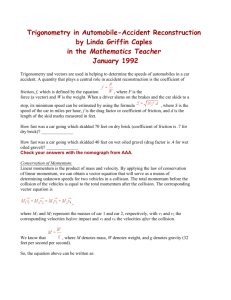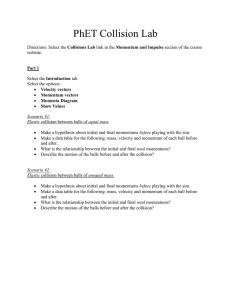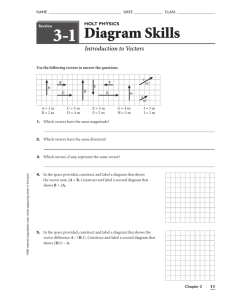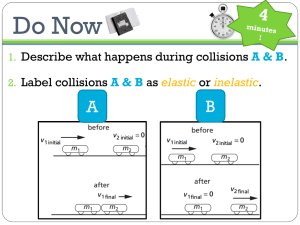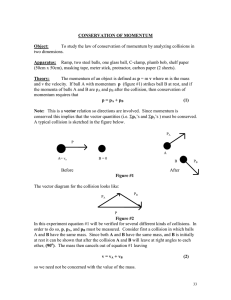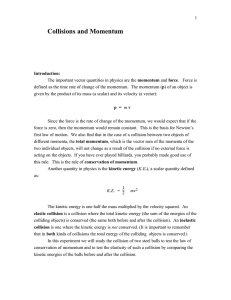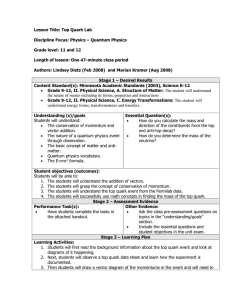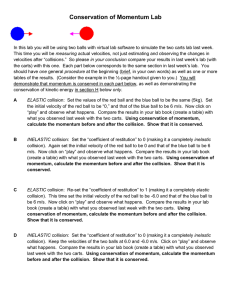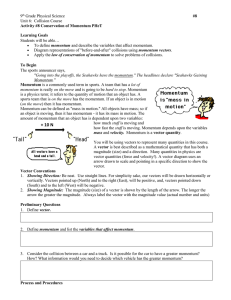Graphical Analysis For each collision, draw the vectors for both balls
advertisement
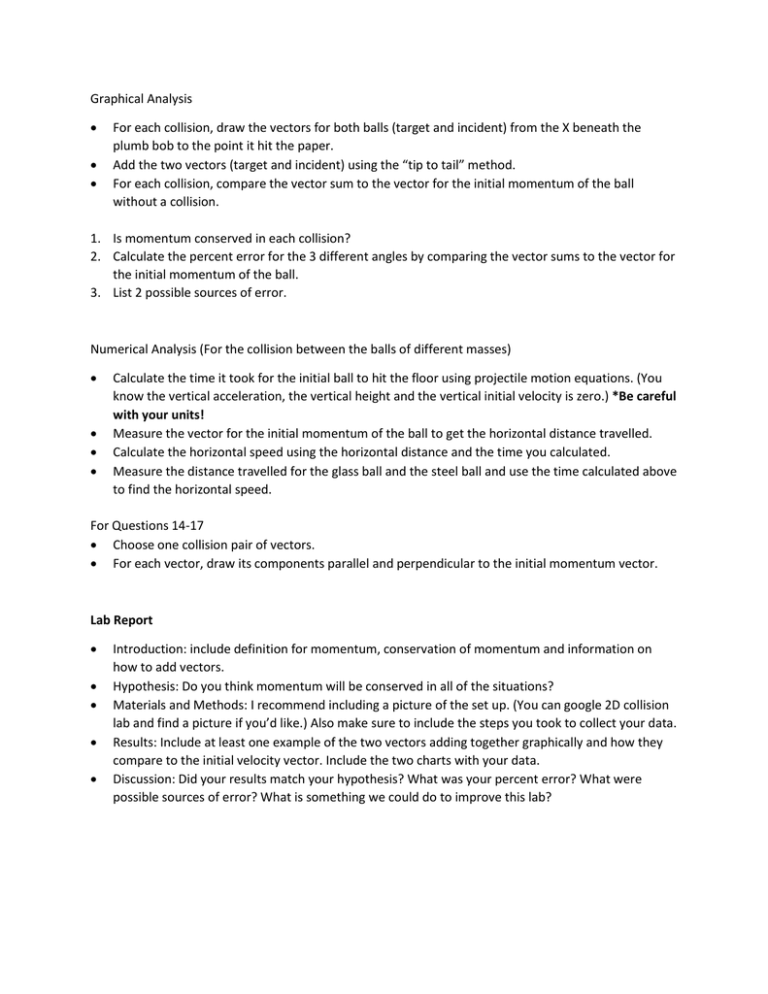
Graphical Analysis For each collision, draw the vectors for both balls (target and incident) from the X beneath the plumb bob to the point it hit the paper. Add the two vectors (target and incident) using the “tip to tail” method. For each collision, compare the vector sum to the vector for the initial momentum of the ball without a collision. 1. Is momentum conserved in each collision? 2. Calculate the percent error for the 3 different angles by comparing the vector sums to the vector for the initial momentum of the ball. 3. List 2 possible sources of error. Numerical Analysis (For the collision between the balls of different masses) Calculate the time it took for the initial ball to hit the floor using projectile motion equations. (You know the vertical acceleration, the vertical height and the vertical initial velocity is zero.) *Be careful with your units! Measure the vector for the initial momentum of the ball to get the horizontal distance travelled. Calculate the horizontal speed using the horizontal distance and the time you calculated. Measure the distance travelled for the glass ball and the steel ball and use the time calculated above to find the horizontal speed. For Questions 14-17 Choose one collision pair of vectors. For each vector, draw its components parallel and perpendicular to the initial momentum vector. Lab Report Introduction: include definition for momentum, conservation of momentum and information on how to add vectors. Hypothesis: Do you think momentum will be conserved in all of the situations? Materials and Methods: I recommend including a picture of the set up. (You can google 2D collision lab and find a picture if you’d like.) Also make sure to include the steps you took to collect your data. Results: Include at least one example of the two vectors adding together graphically and how they compare to the initial velocity vector. Include the two charts with your data. Discussion: Did your results match your hypothesis? What was your percent error? What were possible sources of error? What is something we could do to improve this lab?
